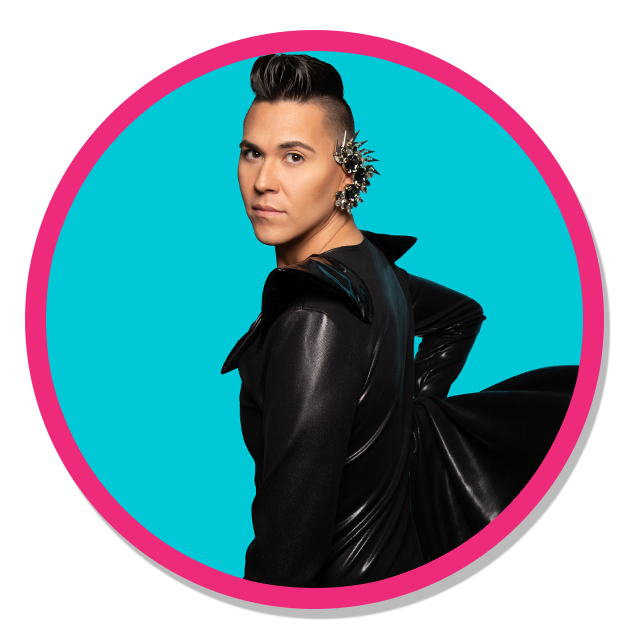
HIV TESTING: WHAT YOU NEED TO KNOW
Taking an HIV test is the only reliable way to know whether you have HIV. If you have HIV, it’s very important that it’s diagnosed as soon as possible. That way:
- You can begin to get the medical care and other services that will keep you in good health.
- You’ll start taking HIV medications and reduce—or even eliminate—the risk of passing HIV to somebody else during sex.
- If you’re pregnant, you can take steps to ensure your baby is born without HIV.
Whether your HIV test result is positive or negative, knowing your status will help you make informed decisions about how to stay safe while having sex—especially if you know your partner’s status, too.
HOW OFTEN SHOULD I GET TESTED FOR HIV?
Regular HIV testing is recommended for everyone who is sexually active. For example, if the Centers for Disease Control and Prevention (CDC) recommend HIV testing every year if you:
- sometimes have sex without a condom
- are not on the HIV prevention pill (a.k.a. pre-exposure prophylaxis, or PrEP)
- sometimes have sex with someone whose HIV status you don’t know
Men who have sex with men are recommended to get tested every three to six months, since HIV rates are higher among gay men than many other groups.
The CDC also recommends that everyone over the age of 13 should take an HIV test at least once in their lifetime.
Because HIV testing is so routinely recommended, many health care centers, doctor’s offices, and hospitals may offer you one in the normal course of a regular checkup or a visit for non-HIV reasons. It’s up to you whether to take them up on that offer, but keep in mind that the earlier a person is diagnosed with HIV, the quicker they can start treatment and ensure they stay healthy over the long term.
WHERE SHOULD I TAKE AN HIV TEST?
There are tons of places to get an HIV test, including:
- private doctors’ offices, like your general physician’s office
- pharmacies
- community health centers
- sexually transmitted disease clinics
- free-standing HIV counseling and testing centers, including vans/buses
- health departments
- hospitals
- special community events or social venues
No matter where you decide to get tested, whoever is performing the test will be able to explain the testing process and answer your questions about HIV. They might also be able to offer advice on reducing your risk of HIV.
To find testing facilities near you in the United States, visit the CDC’s “Get Tested” locator. In addition, your local health department can provide you with a list of local clinics and offices that offer HIV testing.
If you have health insurance coverage—whether it’s a private insurance plan, Medicaid or Medicare—it will usually cover the costs of any HIV test you get in line with the recommendations we mentioned earlier. (If you get tested more frequently, there may be costs involved.)
If you don’t have insurance, don’t worry: There are still tons of places where you can get an HIV test for free. The “Get Tested” locator we mentioned can help with this too.
WHAT KINDS OF HIV TESTS ARE AVAILABLE?
There are three major types of HIV tests:
- At-home tests.
- Rapid tests.
- Confirmatory tests.
Each type has its pluses and minuses. Typically, before a person is formally diagnosed with HIV, they’ll end up having at least two of these tests.
AT-HOME HIV TESTS
If you’re unable to travel to a health care facility or another HIV testing location—or if you’re uncomfortable with the idea of doing so—then home testing could be a good first step. These packaged test kits are sold online, and you can also often find them in drug stores or pharmacies. They usually cost between $30 and $45.
There are a few different at-home HIV test kits on the market, and they work in different ways. The most common test you’re likely to see is requires a small sample of saliva, which you’ll get by running a swab along your gums.
The testing kit comes with a detection unit, which can provide results within about 20 minutes. It’s both private and fast!
But there’s a couple caveats to that privacy and speed.
First, at-home tests are known to occasionally return false-negative results—meaning the test says you’re not living with HIV even though you actually are. Research has found that about 1 in 12 tests that should be positive mistakenly come out negative. On the flip side, false-positive results—where the test says you have HIV even though you don’t—are extremely rare.
Second, the privacy you might get from doing an HIV test in your home also may mean that you’re by yourself at the moment you see a positive test result. That can be scary for some people. That said, the test kit comes with materials that will guide you through your next steps if the test shows a positive result, so you’ll always have a roadmap in front of you.
If you want something more accurate than the saliva test, another at-home HIV test option involves pricking your finger and putting a tiny amount of blood on a specially treated piece of paper. You’ll then seal up the blood sample and mail it to a testing center, which can potentially let you know the results within a day or two. False positives and false negatives are usually very uncommon.
Regardless of which type of at-home test you take, if the test comes back positive, it is not considered a formal HIV diagnosis. To get that—and then to begin the next steps you’ll want to take to get into care and begin treatment—you’ll need to go to a health care center and get a confirmatory test.
The reason at-home tests aren’t enough to confirm your HIV status is because they don’t look for HIV itself: They look for HIV antibodies, which your body develops naturally as it tries to fight off HIV infection.
RAPID HIV TESTS
If you’re able to make it to a health care location or an HIV testing center, odds are the type of test they’ll offer you is a rapid test.
Much like the at-home tests we just described, rapid HIV tests require a tiny sample of saliva or blood. They also live up to their name: A rapid HIV test can provide results within 20 minutes, and sometimes as quickly as 5 minutes.
Unlike at-home tests, rapid tests are given by trained professionals, which makes it more likely that the results will be reliable. This also means you’ll have a knowledgeable care provider at your side to quickly connect you to counseling and other services if the test comes back positive.
As we mentioned earlier in this article, an HIV test you get at a health care location usually won’t cost you anything, unless you’re getting tested a lot more often than the CDC recommends. If you’re uncertain about the costs, you can ask the people working at the testing center for information.
Even though a rapid HIV test is given by trained health care professionals, it’s still not the final word on your HIV status. Just like an at-home test, rapid HIV tests only detect HIV antibodies, not the virus itself. So if a rapid test comes back positive, you’ll need to get a confirmatory test to be certain you’re living with HIV.
CONFIRMATORY HIV TESTS
The most reliable form of HIV test is a confirmatory test, where a trained health care professional takes a sample of your blood and has it analyzed in a lab to confirm whether the virus is replicating in your bloodstream.
Just as there are different types of at-home tests and rapid tests, HIV confirmatory tests come in several flavors of their own. The gold standard of confirmatory testing is what’s known as a 4th generation HIV test.
Like at-home and rapid tests, 4th generation tests look for evidence of HIV antibodies in your blood. But 4th generation tests add a critical detail: They also look for the p24 antigen, a very specific protein that’s only found within HIV itself. This allows them to confirm the presence of HIV in your blood.
Another benefit of 4th generation confirmatory HIV testing is that it can discover more recent infections than HIV antibody testing. This is because it takes your immune system time to develop antibodies once you’ve been exposed to HIV—usually a few weeks, and potentially up to three months or longer. Confirmatory tests are more likely to spot your infection when it’s in the “acute” or “primary” phase, which also happens to be the best time to start treatment.
However, because they’re more complex, confirmatory HIV tests tend to be offered at fewer health care locations than HIV antibody tests. It can also take several days for the results to come back from the lab, making them much slower than antibody tests.
WHAT IS THE WINDOW PERIOD FOR HIV TEST RESULTS?
All of the HIV tests we’ve just discussed will detect the majority of HIV infections acquired more than two weeks ago. That being said, it sometimes takes up to three months for a test to detect a new infection, particularly if it’s an HIV antibody test (such as an at-home or rapid test).
This means that if you are concerned about a recent potential HIV exposure and your first test result is negative, you should have a repeat test three months after the last event that could have exposed you to HIV. A negative result three months after your last sexual encounter is almost certainly accurate.
WHAT DOES A NEGATIVE HIV TEST RESULT MEAN?
If your test result is “HIV negative,” this means that the test did not pick up any sign of HIV infection.
As we’ve explained in this article, HIV tests can occasionally miss infections that were acquired in the past three months—this is the “window period” of the test.
So, if the test result is negative, you can consider that the result accurately tells you that you did not have HIV three months ago.
This is why regular testing (for example, every six months or year) can be a good idea for anyone who is actively at risk for HIV. You may also want to strongly consider taking additional steps to protect yourself from HIV, including:
- barrier protection (e.g., condoms for the penis, vagina, or rectum)
- biomedical prevention (including PrEP, the HIV prevention pill)
- syringe exchange or harm reduction (if you use injection drugs)
WHAT DOES A POSITIVE HIV TEST RESULT MEAN?
It’s very important that a positive test result, if it came from an at-home test or a rapid test, is checked and confirmed by trained health care professionals. This is because false-positive results can occasionally occur due to technical errors. A new sample blood should be checked using a confirmatory test, the most reliable form of HIV testing, to ensure that the first result was correct.
If the confirmed result is “HIV positive,” this means you have HIV. Take a deep breath and plan your next steps:
See a doctor, even if you don’t feel sick. Prompt medical treatment is the best way to ensure that you live a long and healthy life.
Work out who you can turn to for emotional and social support. There are organizations out there that can help you.
Take steps to avoid passing HIV to others. This can include using condoms, taking effective HIV treatment (which eliminates your risk of transmission), or having sex with partners who are taking PrEP.
Get advice on disclosing your HIV status to sexual partners. In some states, this is a legal requirement.
HOW CONFIDENTIAL ARE HIV TEST RESULTS?
In most cases, HIV testing is completely confidential. This means that nobody—not your partner, your family, your employer, or anyone else you don’t want to know—won’t be able to find out the result without your permission. As with other medical information, your results are protected by privacy laws.
Nonetheless, the result will go in your medical record. That means it may be shared with other health care providers and your insurance company.
If the result of your test is positive, your state and local health departments will also be informed. They may contact you, offering help with accessing medical care. They may also offer to contact your previous sexual partners (without disclosing your name) in order to suggest that these individuals take an HIV test, too. (You don’t have to agree to them doing this.)
ANONYMOUS TESTING MAY BE AN OPTION
If you are not comfortable with the idea of being contacted with additional information and services, you may be able to request anonymous HIV testing when you have an HIV test done. If an HIV test is taken anonymously, the organization providing the test won’t know your name or other personal details. Instead, you will be given a unique identifier you use to receive your test result.
However, anonymous HIV testing is only available in some states and at some testing sites. To find out whether it is available, contact your local health department.
Of course, one other way to test anonymously is to use an at-home HIV testing kit.
HIV TESTING IS COMPLETELY UNDER YOUR CONTROL
For some people, just the idea of getting tested for HIV can be terrifying. Living with HIV is far from a death sentence, especially if you get diagnosed and start treatment quickly. (Bonus: When HIV treatment works, it also makes it impossible for you to transmit the virus to others.) The law also protects people living with HIV from most forms of discrimination.
That said, there’s still a lot of stigma and unfair judgement tied to living with HIV, which can lead some people to avoid getting tested. And even though there are laws against HIV discrimination, some states also have laws that criminalize HIV.
This fear of HIV may partly explain why about 15% of Americans living with HIV don’t know it—and why HIV continues to spread. (Other reasons include poor access to quality health care and HIV education, which is why HIV tends to be more common in communities and parts of the country where great health care is harder to get.)
On the flip side, for some people, there’s no fear of getting tested for HIV—in fact, some folks get tested for HIV far more often than is necessary or considered wise. Paranoia about HIV exposure can happen, and it may be tied to other mental or emotional health issues.
If you’re always afraid of HIV exposure or are convinced that—despite repeated negative results—all your HIV tests are wrong, please know that there’s plenty of help out there. The same facilities where you get tested for HIV can often help refer you to counseling.
Whether the idea of getting tested for HIV frightens you, feels like a compulsion, or is simply something you’re curious about, remember that you have control over when and where you get tested. Educate yourself about HIV, consider your options, and empower yourself to make the best choices for your health.












